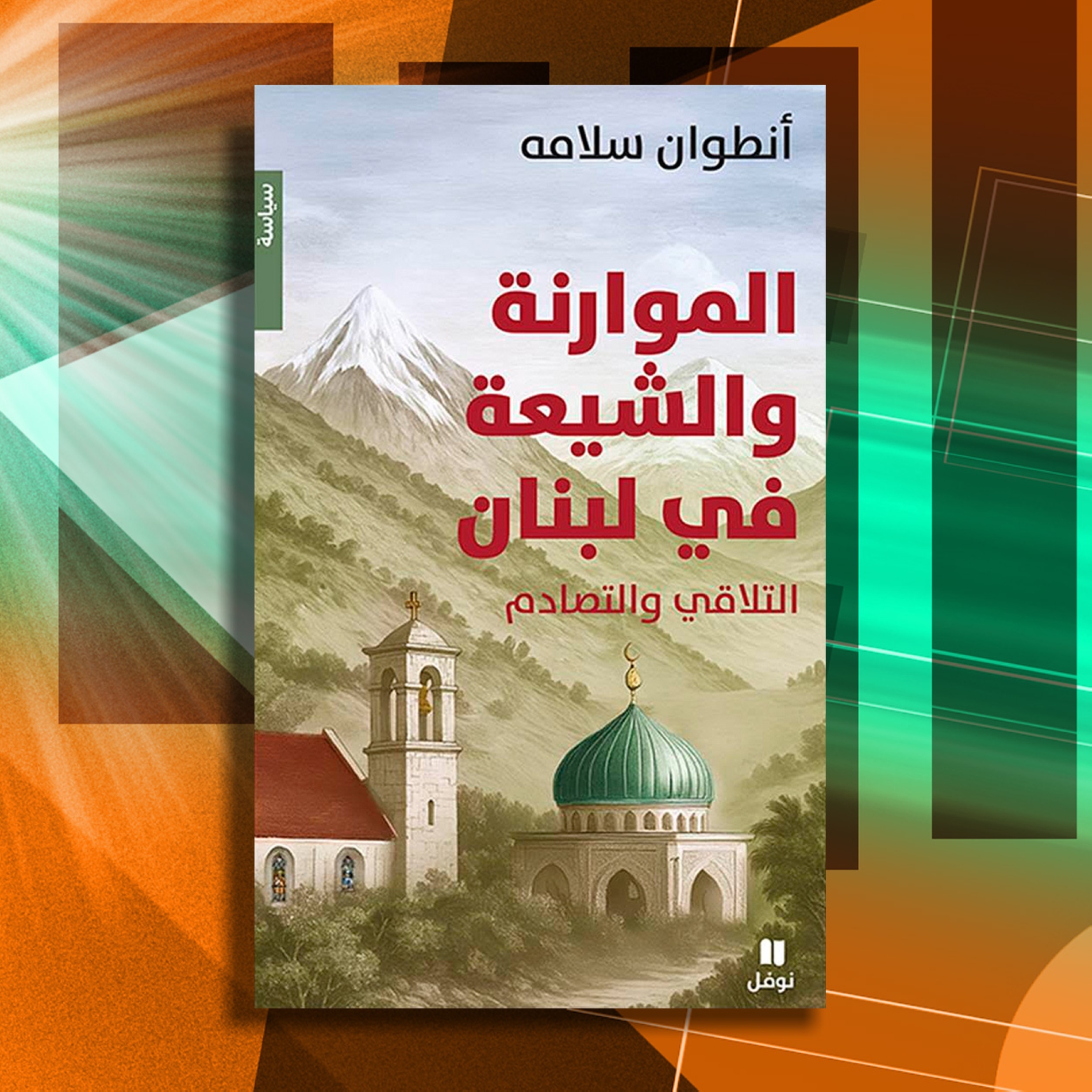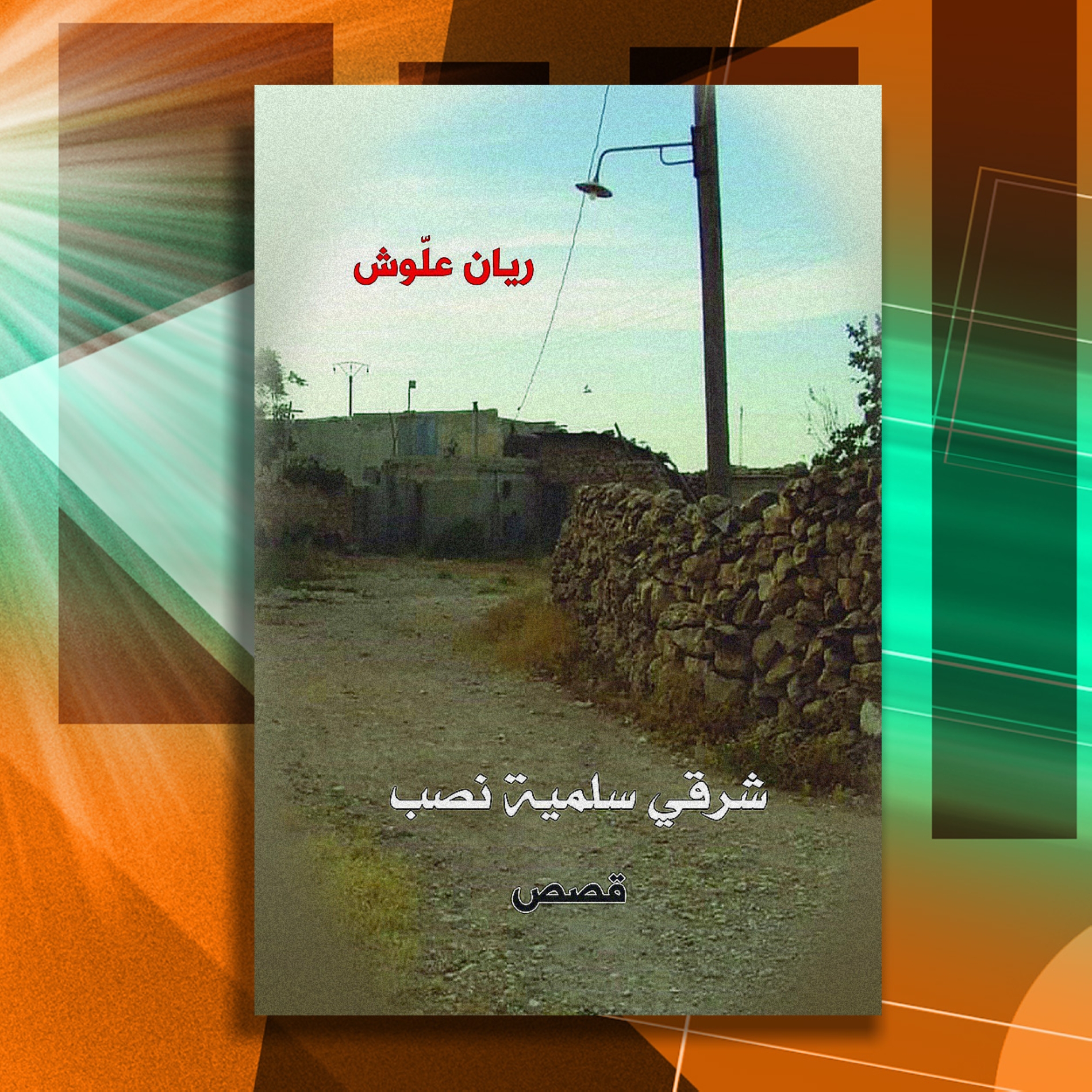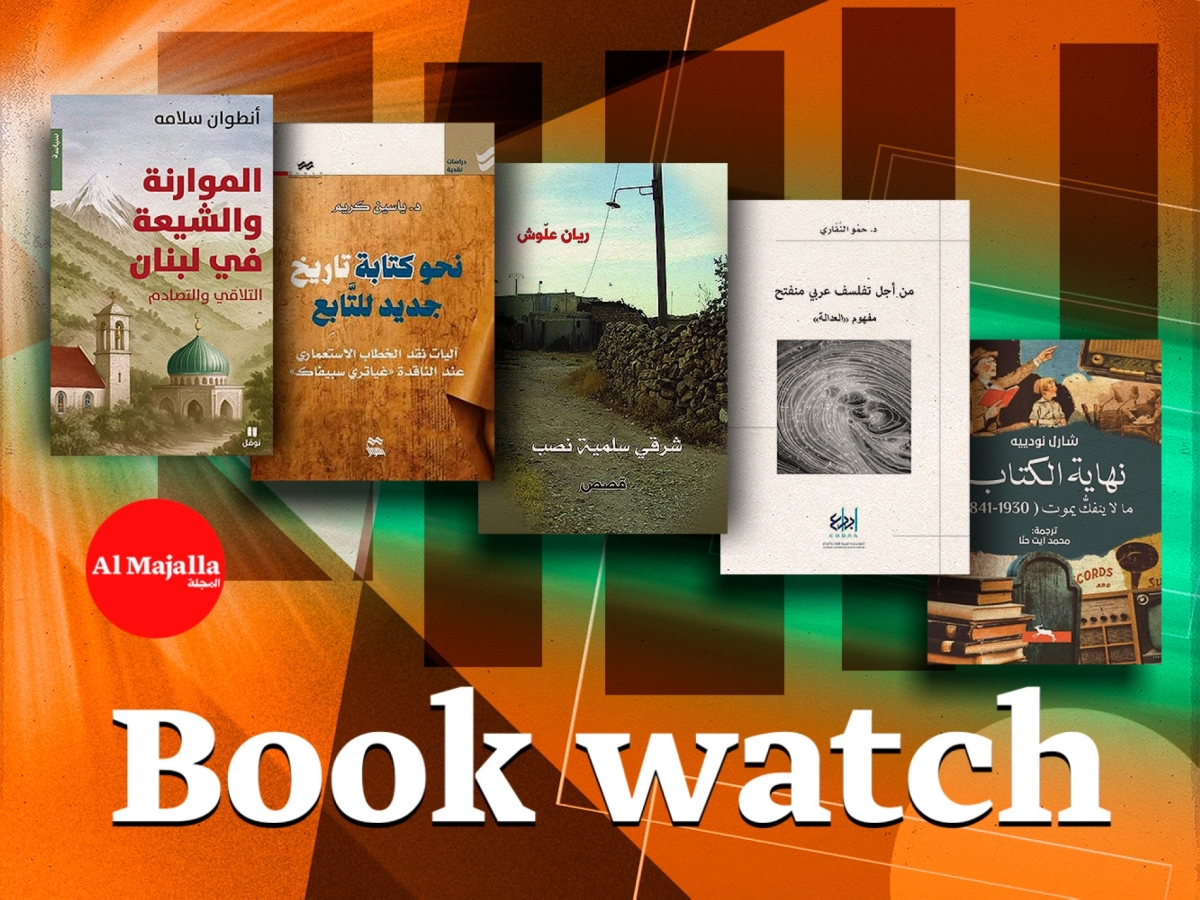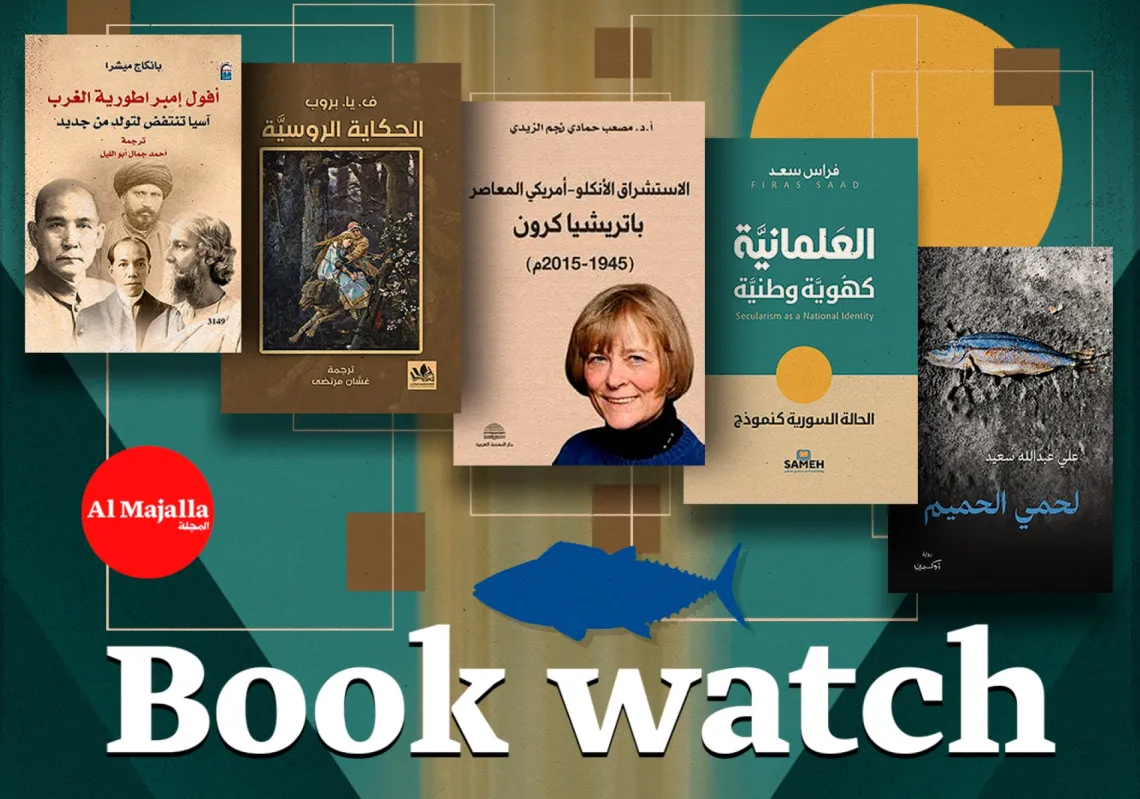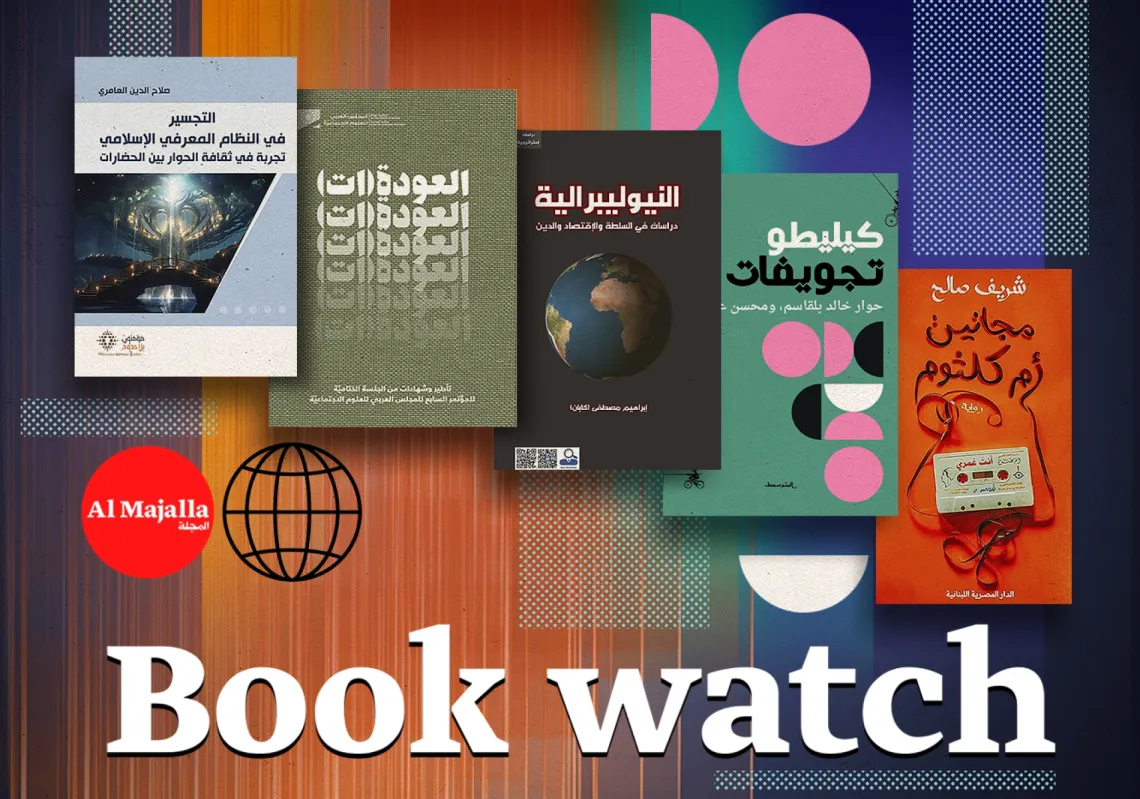In Our Heavy Loads, readers follow a man with a hunched back. His psychiatrist believes the affliction is not a physical condition but the result of inherited burdens—beliefs, ideologies and convictions—passed down through generations. Determined to free himself, the man throws these burdens into the river, but drowns with them, unable to detach what is now an inseparable part of him. It serves as a metaphor for the collapse of the Syrian individual under ideological pressure, and for the broader existential dilemma facing Syrians confronting both their inner conflicts and their historical legacy.
In The Strange Shepherd Dogs, Alloush enters a symbolic realm, with a power struggle between a charismatic dog (Fernando) and a cat (Matilda), set on a farm that may represent Syria. What begins as a friendship descends into rivalry, not due to the animals themselves but through the manipulations of the narrator, who executes a deliberate strategy of division and control.
An allegory, it looks at how social and political conflict is manufactured by deception and provocation in divided societies. The story ends with the regime's apparent triumph over the foreign dogs on the farm, leaving readers asking what it means to belong, and considering how freedom—when detached from responsibility and consciousness—can spiral into destruction.
Throughout the collections, characters yearn for deliverance from the impossibility of escape, whether from the burdens of history or geography. The result is a literary testimony steeped in tragic absurdity, where the grotesque and the comical intertwine to reflect the complexities of a wounded nation.
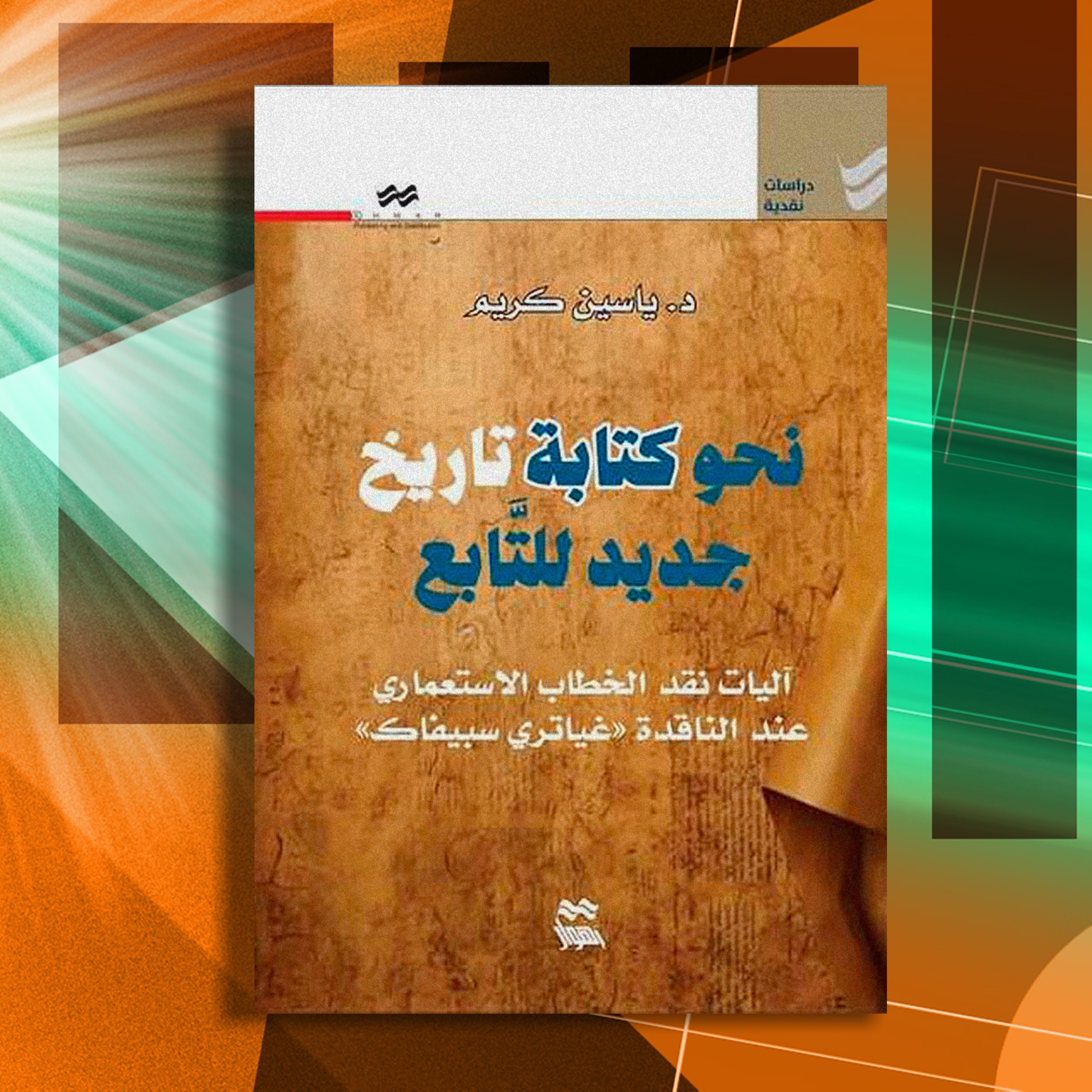
Towards Writing a New History of the Subaltern: Mechanisms of Critiquing Colonial Discourse in the Work of Gayatri Spivak
By: Yassin Kareem
Publisher: Ahwar Publishing and Library, Iraq
Rooted in postcolonial studies, this work by Dr Yassin Kareem is a critical reading of the ideas of Indian theorist Gayatri Spivak, focusing in particular on her influential essay Can the Subaltern Speak? This text is often placed alongside the works of Edward Said and Homi Bhabha in terms of influence, forming what some consider a 'foundational trinity' within the field of postcolonial theory.
Kareem explores Spivak's methodology, aiming to expose the mechanisms through which colonial discourse has shaped—and continues to shape—knowledge production and political control over colonised societies. Through a detailed engagement with Spivak's ideas, especially her concepts of 'the other' and 'the marginalised,' the book examines how history might be reimagined from the perspective of the subaltern (the populations excluded from power in an imperial colony).
Central to the study is an interrogation of how colonial discourse constructs knowledge systems that marginalise and silence the voices of the oppressed. Kareem shows how historical and cultural texts authored by colonial powers can be reinterpreted to reveal layers of power and ideological distortion. He emphasises the need for a critical methodology capable of recovering these voices and reframing their histories with fairness and intellectual integrity.
Each chapter of this book is organised into analytical segments supported by examples drawn from Spivak's writings and other historical and cultural sources. This careful structure allows Kareem to bridge theory and practice, grounding his analysis in early anti-colonial texts that paved the way for postcolonial thought, including the works of Frantz Fanon, Aimé Césaire, and Edward Said, which serve as both theoretical and historical context for his exploration of Spivak's interventions.
The significance of this study lies in its philosophical re-examination of colonialism and its long aftermath. It seeks to reposition the subaltern within historical discourse, challenging dominant narratives and calling for a new writing of philosophical history that restores dignity and visibility to those who have been marginalised.
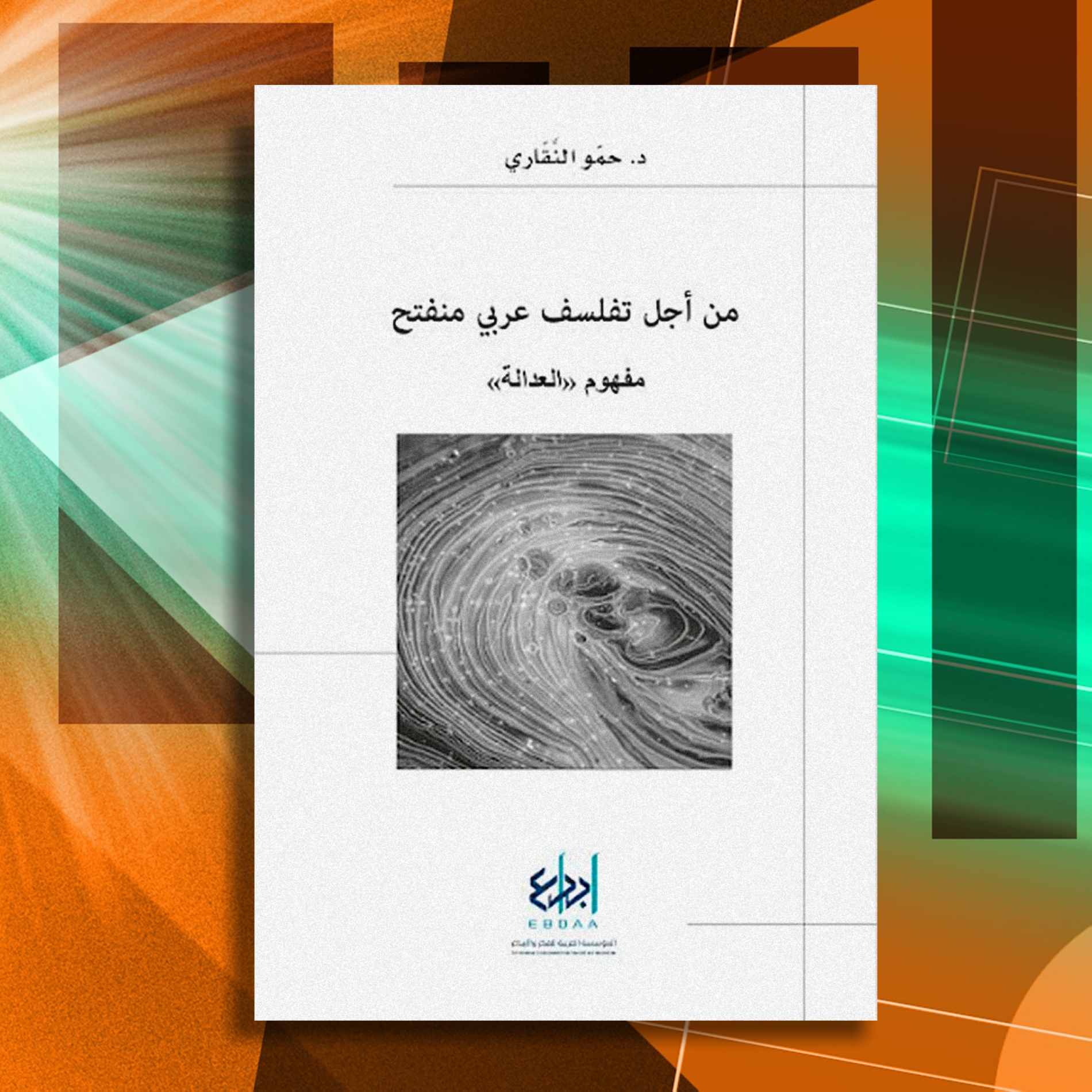
For an Open Arab Philosophical Practice: The Concept of Justice
By: Hamou Naqqari
Publisher: Arab Institution for Thought and Creativity, Morocco
Here, Moroccan philosopher Dr Hamou Naqqari puts forward a philosophical vision that seeks to move beyond Western frameworks on major philosophical questions. He centres his analysis on the Arab context and the Arabic language, aiming to lay the foundations for a critical Arab methodology capable of engaging with contemporary ethical, social, and intellectual concerns in a renewed and open manner.
The book offers both linguistic and philosophical inquiry, examining how Arabic shapes the articulation of philosophical ideas and how a deeper understanding of the language can create space for fresh philosophical thinking. While the study focuses on the theory of justice, it also sets out a model for a broader Arab approach to philosophy—one that can engage other cultures and traditions while retaining its own identity and distinctiveness.
Comparing Arab and Western intellectual traditions, the author insists that Western philosophy should not be imitated uncritically but rather used as a tool. In this way, the book serves as a bridge, maintaining a strong connection to Arab intellectual heritage while engaging in a reflective, critical conversation with modernity. Naqqari says justice is not a detached abstraction, but a value deeply rooted in the social, linguistic, and historical fabric of the Arab world. He therefore calls for a rethinking of justice grounded in the region's particular linguistic and cultural reality.
The book introduces a fresh philosophical perspective that restores depth to foundational concepts within Arab thought. It encourages a dialogue between Arab heritage and global philosophy, offering an alternative to approaches that either reject tradition or lose themselves in imported models. It also forms part of Naqqari's wider intellectual project to revitalise Arab philosophy by establishing an independent and critical framework capable of confronting the complexities of the contemporary world.
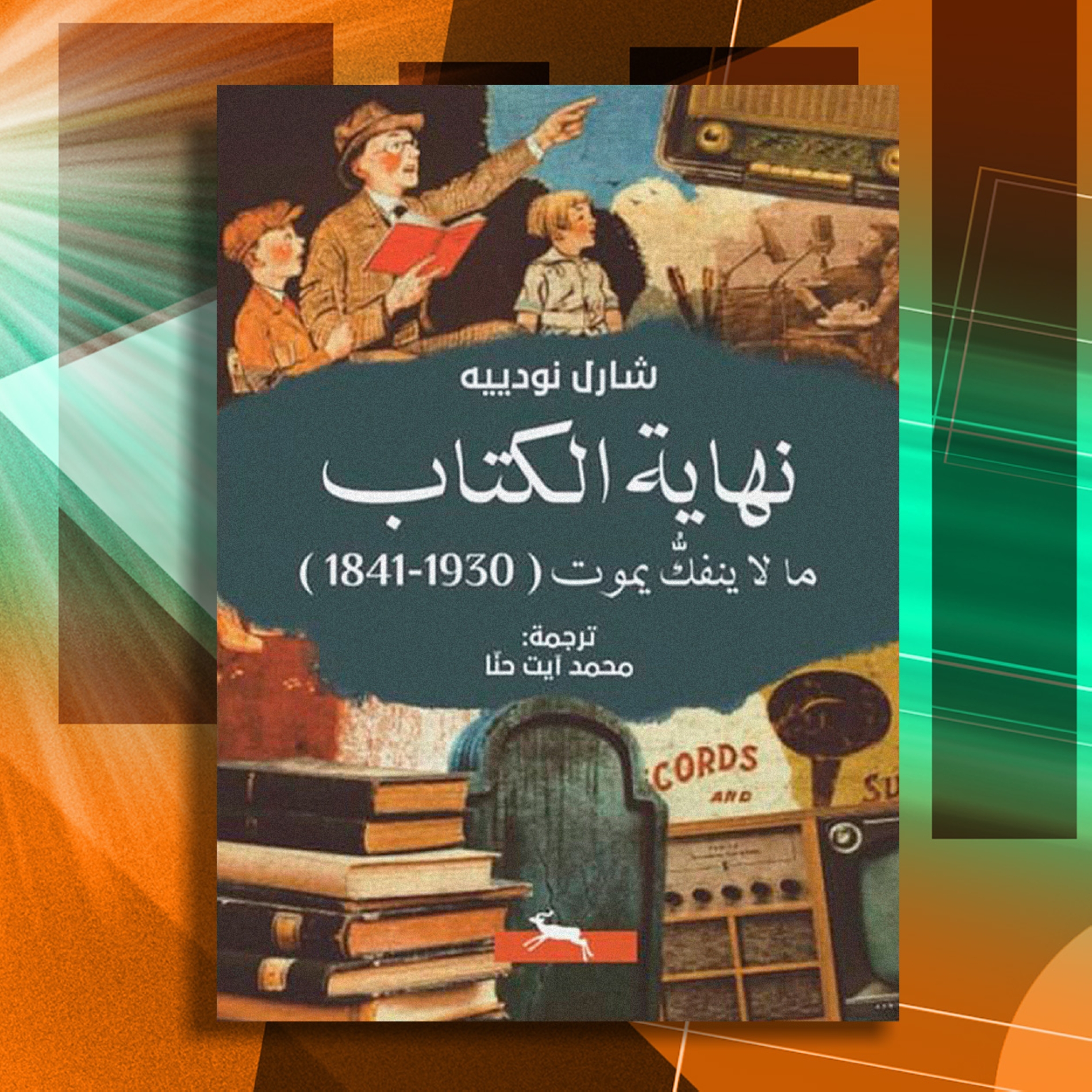
The End of the Book: What Refuses to Die
By: Charles Nodier
Translator: Mohamed Ait Hanna
Publisher: Book Club Publications, Saudi Arabia
Since the emergence of radio and television throughout the 20th century, predictions and declarations of the death of the book have been many and often, yet as French writer Charles Nodier notes, "the book has laughed at those who foretold its demise," prompting him to ask: "Is there a more stubborn creature in cultural history?"
With a prescient outlook shaped in the early 19th century, Nodier examines written culture during a period when printing and reading were undergoing significant transformation, with journalism and publishing posing new challenges to the traditional role of the book. Nodier merges philosophical reflection with literary commentary when examining the survival of the book in an age marked by new forms of communication and knowledge dissemination.
He looks at cultural shifts, notably the decline in the act of reading under the pressure of speed and consumption. The printed book, once a symbol of lasting knowledge, faced an uncertain future. Yet Nodier maintains that "what refuses to die" never disappears completely. Altered in structure or spirit, the book still finds relevance with each passing age. His reflections carry both nostalgia and insight. Mourning the loss of the book's symbolic authority, he also celebrates its resilience. For Nodier, written culture does not perish; it adapts. There is no final disappearance, just an evolution in form and function.
What gives this work particular urgency is its resonance with today's world, which has already been recently transformed by the internet, and is once again being transformed by Artificial Intelligence. Amid the sweeping technological transformations, Nodier's 19th-century meditation feels strikingly contemporary, with the same questions asked then as now: What does it mean to read? What role remains for the author? How can readers preserve cultural memory in today's age?
The End of the Book is not a farewell, but a reaffirmation of continuity. It demonstrates that in living cultures, nothing truly dies; it transforms, taking on a new life in new forms.
